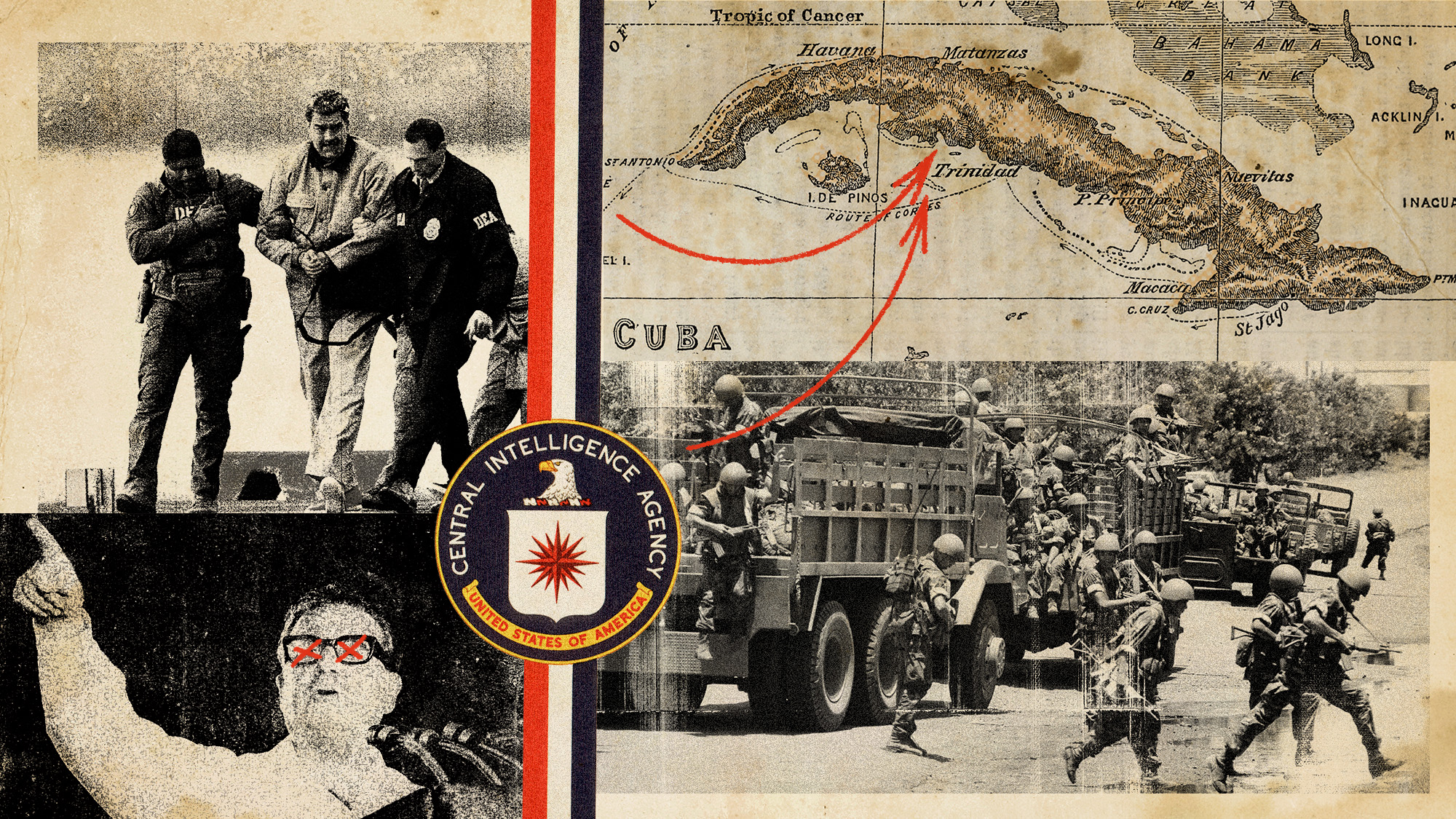The false premise making war with Russia more likely


A free daily email with the biggest news stories of the day – and the best features from TheWeek.com
You are now subscribed
Your newsletter sign-up was successful
Crafting a wise foreign policy requires weighing one's own national interests against those of rivals and adversaries around the world. The comparison with other countries is important because it's only through an informed understanding how they view the world — and our own behavior within it — that we can accurately anticipate how they'll respond to our actions.
If foreign policy writer Peter Beinart is right, the United States struggles mightily with placing ourselves in the shoes of our rivals and adversaries around the world. In a recent Substack post, Beinart calls this one of our "delusions of innocence" — the predisposition of Americans to think well of ourselves and to dismiss the stated concerns of others as rooted in dishonesty or bad faith.
That predilection certainly plays a role in how many pundits and analysts are thinking about the current standoff between NATO and Russia over eastern Ukraine. The argument goes like this: Russian President Vladimir Putin claims NATO poses a threat and demands the alliance halt all plans plans to expand to Ukraine, Georgia, and other countries in Russia's near abroad. But NATO is merely a defensive alliance that poses no genuine threat to Russia. Therefore, Putin's demands are nothing but an excuse for him to revive the "evil empire" of the Soviet Union, and NATO must to stand firm against making any concessions.
The Week
Escape your echo chamber. Get the facts behind the news, plus analysis from multiple perspectives.

Sign up for The Week's Free Newsletters
From our morning news briefing to a weekly Good News Newsletter, get the best of The Week delivered directly to your inbox.
From our morning news briefing to a weekly Good News Newsletter, get the best of The Week delivered directly to your inbox.
The questionable premise — the one rooted in our "delusions of innocence" — is the second one, that NATO poses no threat. As Beinart notes in his post as well as in a recent New York Times column, it's instructive to imagine the American response if Mexico attempted to join a military alliance backed by a rival power. We would of course be apoplectic and quite ready to use military force to stop it — yes, even if newspaper columnists writing in the rival power's capital city penned tightly reasoned opinion pieces about how the alliance on America's southern border posed no threat at all to the United States.
The point isn't to imply moral equivalence between the U.S., Russia, and an imagined geopolitical rival allied with Mexico. It's rather to suggest that moral stature has much less to do with formulating foreign policy than American opinion makers tend to assume. NATO has repeatedly expanded eastward since the end of the Cold War, right into Russia's backyard, and the alliance has demonstrated numerous times (in the Balkans in the late 1990s, in Afghanistan beginning in 2001, and in Libya in 2011) that it's quite capable of projecting military power offensively, far beyond its constituents' borders. That's more than enough to justify Russian obstinance and bellicosity.
This doesn't mean the West should capitulate to all of Russia's demands. But we should recognize those demands aren't entirely rooted in bad faith. That awareness just might make it a little more possible to resolve the current standoff without bloodshed or an even larger Russian occupation of Ukraine.
A free daily email with the biggest news stories of the day – and the best features from TheWeek.com
Damon Linker is a senior correspondent at TheWeek.com. He is also a former contributing editor at The New Republic and the author of The Theocons and The Religious Test.
-
 Health insurance: Premiums soar as ACA subsidies end
Health insurance: Premiums soar as ACA subsidies endFeature 1.4 million people have dropped coverage
-
 Anthropic: AI triggers the ‘SaaSpocalypse’
Anthropic: AI triggers the ‘SaaSpocalypse’Feature A grim reaper for software services?
-
 NIH director Bhattacharya tapped as acting CDC head
NIH director Bhattacharya tapped as acting CDC headSpeed Read Jay Bhattacharya, a critic of the CDC’s Covid-19 response, will now lead the Centers for Disease Control and Prevention
-
 ‘The mark’s significance is psychological, if that’
‘The mark’s significance is psychological, if that’Instant Opinion Opinion, comment and editorials of the day
-
 Big-time money squabbles: the conflict over California’s proposed billionaire tax
Big-time money squabbles: the conflict over California’s proposed billionaire taxTalking Points Californians worth more than $1.1 billion would pay a one-time 5% tax
-
 Did Alex Pretti’s killing open a GOP rift on guns?
Did Alex Pretti’s killing open a GOP rift on guns?Talking Points Second Amendment groups push back on the White House narrative
-
 Washington grapples with ICE’s growing footprint — and future
Washington grapples with ICE’s growing footprint — and futureTALKING POINTS The deadly provocations of federal officers in Minnesota have put ICE back in the national spotlight
-
 Trump’s Greenland ambitions push NATO to the edge
Trump’s Greenland ambitions push NATO to the edgeTalking Points The military alliance is facing its worst-ever crisis
-
 Why is Trump threatening defense firms?
Why is Trump threatening defense firms?Talking Points CEO pay and stock buybacks will be restricted
-
 A running list of the international figures Donald Trump has pardoned
A running list of the international figures Donald Trump has pardonedin depth The president has grown bolder in flexing executive clemency powers beyond national borders
-
 A running list of US interventions in Latin America and the Caribbean after World War II
A running list of US interventions in Latin America and the Caribbean after World War IIin depth Nicolás Maduro isn’t the first regional leader to be toppled directly or indirectly by the US
